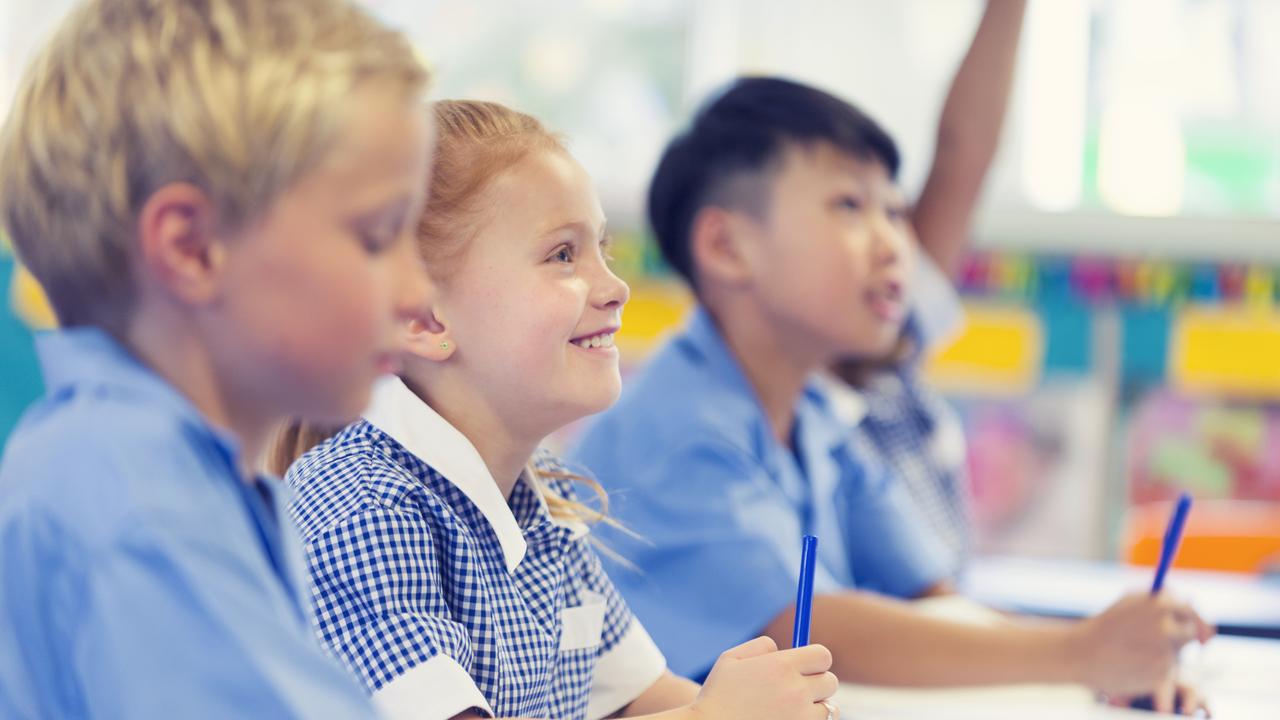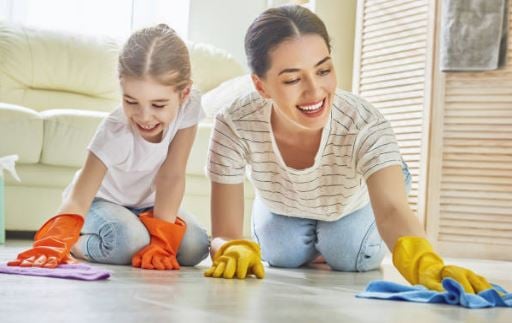It’s official: schools in NSW, QLD and across the country will begin reopening from next week. While this comes as great news for some parents, many will be concerned about the risk of their children contracting coronavirus and potentially spreading it to more vulnerable people, such as grandparents. It’s undoubtedly a tough decision to send kids back to school, but with the right cleaning practices put in place, the risk can be reduced.

Educate students to limit the spread
The most effective thing schools and parents can do to limit the spread of coronavirus is to educate their children on hygiene safety. Students should be instructed to wash their hands regularly and thoroughly and to sneeze into their elbow or a tissue, disposing of the tissue straight away and then washing their hands. Parents must be vigilant of any signs of sickness and not allow their kids to leave home if they are unwell. Likewise, teachers must send home staff or students who show signs of being unwell through the day. To help make it easier for students and teachers to follow hygiene guidelines, schools should ensure supplies of soap, hand sanitiser and tissues are readily available.
Close non-essential spaces
To limit the amount of potential contact amongst students and teachers and to reduce the number of surfaces needing cleaning, schools should only use the teaching spaces required to maintain social distancing measures. Within classrooms, students should be spaced out as much as possible, with one desk per student if available, and mixing of students and staff between rooms should be avoided. The more spaces trafficked by students and teachers, the greater the number of surfaces that require cleaning.
How to keep classrooms virus free
To be certain you are completely removing viruses from a surface, you must ensure both cleaning and disinfecting are taking place. Cleaning eliminates germs by physically removing them from a surface with soap or detergent and water. Disinfecting removes germs on surfaces by killing them with chemicals. Both these techniques together ensure that surfaces are safe from viruses by physically removing them and killing anything that remains. To ensure that surfaces remain resistant to viruses even after cleaning, Challenger Services uses specialist products, such as a total sanitation and 7-day barrier, which kill any viruses that land on a surface for up to 7 days or 200 touches.

Remove viruses from high-touch surfaces
High-touch areas need frequent cleaning as the large amount of contact increases the potential for contamination. Areas in need of higher frequency sanitisation include: door handles and knobs, desks, chairs, countertops, soap dispensers, taps, toilets, water fountains, light switches, hand sanitising units, lockers, printers, computers and keyboards. As well as high-touch areas, it is essential to increase the frequency of cleaning generally, due to the long duration that the virus can survive on surfaces. Daily cleaning and disinfection is required for touch-points such as; doors, handrails, gates and guardrails, sinks and basins, toilets, electrical fixtures, kitchenettes, waste bins, walls, mopping of hardwood floors as well as regular carpet steam cleaning.
Keep surfaces tidy
To make the process of cleaning and disinfecting easier and more effective, clutter should be removed from surfaces wherever possible. Store all loose items off the floor level (where possible), including around desks and in non-teaching spaces. Desks, worktables, and workbenches must be clear of all paper and learning equipment. Student work, art materials and resources that are normally kept or displayed on surfaces should be stored in student tote trays and storage cupboards. In staff rooms, clear away all crockery, resources (including books and papers) and any food materials from all surfaces.
Deep cleaning any known contact with COVID-19
If a school is directly impacted by a confirmed or suspected case of coronavirus, the school will be required to complete an urgent professional deep clean to Department of Health Standards (“Terminal Clean”) of all surfaces, including; furniture, equipment, walls and flooring with hospital-grade disinfectant. Challenger Services Group specialises in conducting Terminal Cleans, disinfecting and fogging premises that are suspected of being infected with COVID-19 and can provide minor disruption to your school should this event occur. Challenger Services Group have multiple teams across Australia, specialising in Terminal Cleans, who are ready to deploy at short notice. However, the best way for schools to prevent COVID-19 breakouts is to engage accredited, experienced, professional cleaning providers routinely who can ensure long-lasting sanitisation of teaching spaces and thoroughfares.
Contact Challenger Services Group today to get a quote from a trusted cleaning provider with experience in the education and childcare sectors.


